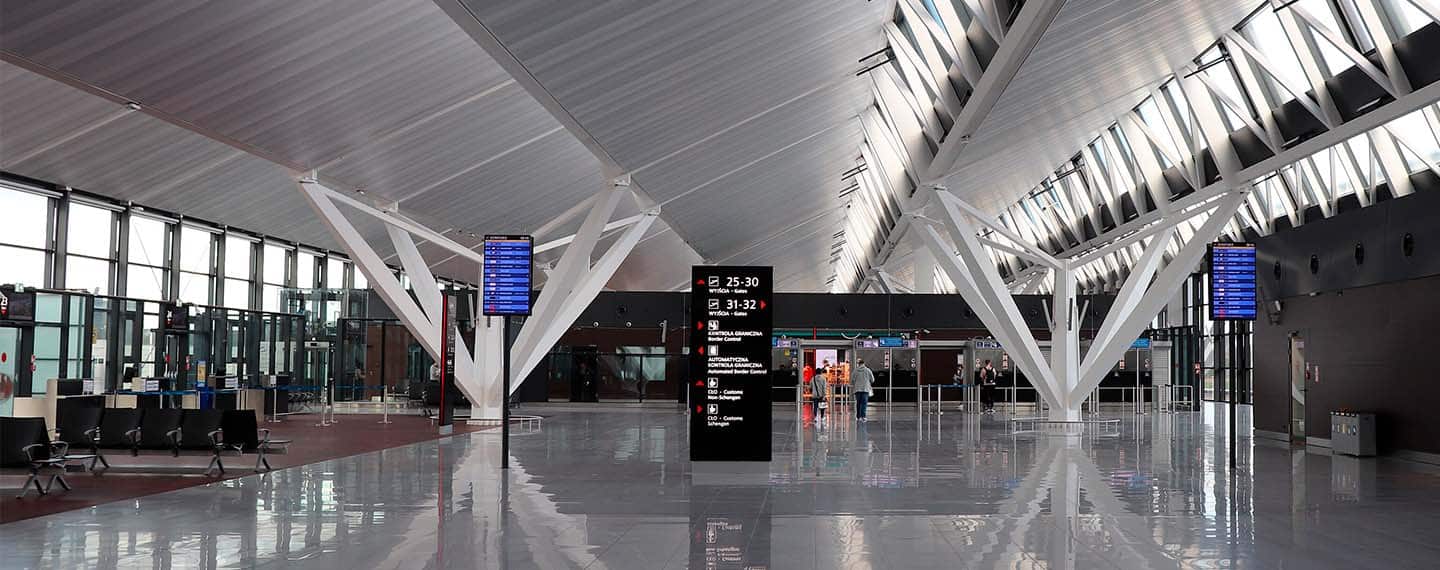It was the 1985 Schengen Agreement that emphasised for the first time that ‘the ever closer union… should find its expression in the freedom to cross internal borders’. With the Schengen Area, the abolition of checks at common borders was a long-term goal that was soon achieved, following the harmonisation of border-check practices to transfer all controls to the external borders. This constitutes a fundamental pillar of the process of European integration and a major step forwards in the economic and social progress of the EU. As a result, the Treaty of Amsterdam (1997) integrated the Schengen acquis into EU law through Protocol 2. This, in turn, codified parallel regional integration through opt-outs for an already sceptic UK, whilst imposing on new member states the obligation to join Schengen, subject to an evaluation. Since then, two major challenges to the integrity and prospects of survival for freedom of movement have emerged. On the one hand, the temporary reintroduction of internal border controls across the continent, which has allowed executives to abuse the clauses in the Schengen Borders Code (SBC) to create de facto permanent internal borders. On the other hand, the systematic blocking of accession to the Schengen Area for Romania and Bulgaria, only partially lifted on 31 March 2024. Although these actions have been widespread in the Union, many of the policies come down to the action of the fiscally austere ‘Frugal Four’: Austria, Denmark, the Netherlands and Sweden.
Nevertheless, countries like Spain and Portugal have acted in an exemplary way and have only exploited the mechanism of border checks when there has been an actual force majeure.
Apropos the increased migration influxes to the Union in 2015 and the challenges to internal security caused by terror attacks, many member states decided to adopt temporary border checks. These unilateral decisions resulted in a domino effect across the Union that ultimately jeopardised Schengen as one of Europe’s most successful collective assets. Most of the policies favouring this new impoverished conception of the Schengen ideal were sustained by a relatively recent legal basis that added a new possibility under the Schengen Code to introduce such restrictions. All Schengen legal exceptions were also the object of stringent conditions and procedural steps to prevent overstretching of the provisions, something currently being experienced. Before 2013 only two scenarios were contemplated: a foreseeable serious threat such as an unforeseen event (Art. 25 SBC) or the imperative for immediate action in the case, for instance, of a terrorist attack (Art. 28 SBC). However, the 2013 revision introduced a third possibility (Art. 29-30 SBC) of implementing border controls through Regulation (EU) No 1053/2013 as a last resort in cases of ‘persistent serious deficiencies relating to external border control’ that put ‘the overall functioning of the area without internal border control’ at risk. This regulation virtually gave European member states a blank cheque to exploit the possibility of closing internal borders. Following the invocation of national security concerns due to the migrant crisis, the Commission issued the Communication Back to Schengen – A Roadmap. This endeavoured to remedy the deficiencies at the external borders whilst ensuring compliance with asylum rules and coordinating temporary border controls. With the rise of nationalist-populist narratives and the COVID-19 pandemic, the attempt by EU institutions to safeguard Schengen inevitably proved to be nothing more than a paper tiger. Based on this, much litigation –often started by experts in EU law as a form of scholarly activism– began in the Court of Justice of the EU (CJEU) to determine the legality of controlling the movement of people in border regions. Given the different preliminary references issued to the CJEU, these judicial cases were extremely politicised, with the Commission choosing to intervene against internal controls and different member states supporting their legality. In 2022 the Grand Chamber ruled against Austria and insisted on the importance of the free movement of persons and the abolition of internal border controls for European integration. The Court concluded that states could not change the invoked legal basis as it would create de facto permanent controls, which would be unlawful and incompatible with EU law. This in turn evinces that the functioning of the Schengen area is no longer an intergovernmental policy in the hands of national executives. Instead, it has been ‘communitarised’, with a wider EU centralised and supranational control.
When analysing the full list of member state notifications of the temporary reintroduction of border controls at internal borders, all evidence shows that making exceptions to Schengen has become the norm. The Frugal Four have become leaders in internal border controls, especially Austria. More strikingly, France and Germany have also succumbed to these socially and economically destructive trends, contradicting their tradition as classical drivers of continental integration. Nevertheless, countries like Spain and Portugal have acted in an exemplary way and have only exploited the mechanism of border checks when there has been an actual force majeure. This Iberian model makes evident a profound pro-European devotion to the maintenance of the freedom of movement and the continuity of Schengen, consistent with the EU’s fundamental values but also on the basis of pragmatic economic premises. Even at the most troubled stages of the pandemic, Spanish-Portuguese cooperation endured and inspired other member states in the EU. Now, with war and conflict becoming endemic in the Old Continent, perhaps it is time to learn again from the Iberian partnership to combat contemporary challenges to peace and stability.
The wider question is: why should we care about Schengen? If the arguments on the freedom of movement are not compelling enough, data and economics offer us some alternative answers.
In 2016 the European Parliament Research Service published the study ‘The Cost of Non-Schengen’. The paper concluded that, in the highest-cost scenario, the indefinite introduction of internal border checks could cost Europeans as much as €230 billion over 10 years. Simply to have a notion of this vast magnitude, it is useful to analyse the budget allocations of the EU’s 2021-27 Multiannual Financial Framework (MFF). The latter stipulates the expenditure allocated to different policy areas over a seven-year framework. For instance, in the MFF the successful and renowned European Regional Development Fund has a budget of around €200 billion as part of the wider Cohesion Policy. In this vein and based on the data, it can be inferred that the money being saved from a successful internal market could be better spent on supporting Europe’s regions and cities.
The damage generated by border controls is also evident in the environment and human health. This brings us to the reiterated veto to the full entry of Romania and Bulgaria into the Schengen Zone. At the end of the Spanish Presidency of the Council of the EU, it was announced that air and maritime borders would be lifted in March 2024. Although a major step, these strategic Black Sea nations are still prevented from accessing the most tangible contribution: land borders. Amidst fears of increased migration, Austria and the Netherlands have persisted in vetoing their entry and have disregarded resolutions from the European Parliament. The Parliament’s Resolution advocated ‘the enlargement of the Schengen area to include Romania and Bulgaria’ and was based on the fact that they had both proved their readiness for Schengen enlargement since they successfully completed the Schengen evaluation process in 2011. Furthermore, it reiterated that, according to the EU border agency Frontex, the two member states were not a migratory route that threatened the current Schengen Area.
Despite the pressure exerted by the Commission, some of the Frugal Four effectively shut the door on any hopes of joining the Schengen Area. These reservations have been shown to serve exclusively political purposes with no empirical validity.
If anything, the blockage could only further aggravate the pollution problems at border crossings. First, queues in border areas are calculated to cost around €55 per lorry per hour based on national evaluation reports. Secondly, 46.000 tonnes of CO2 are emitted every year as a result of traffic jams at these border controls, which is hardly compatible with the EU’s climate neutrality and environmental protection targets. Thirdly, with one of the highest levels of fine particulate matter, Bulgaria and Romania could be faced with more air pollution, which could be detrimental to respiratory and cardiovascular diseases as well as human health more widely. Fourthly, the working conditions of Bulgarians and Romanians should not be underestimated. Faced with this arbitrary discrimination, businesses experience bureaucratic burdens whilst drivers struggle with long queues to cross the border. An incomprehensible delay that lasts –in the best-case scenario– a few hours may often extend to entire days. The abolition of land border checks in Romania and Bulgaria through Schengen could reduce waiting times to as little as 10 minutes. Lastly, as the Parliament Resolution pointed out, being non-Schengen for the Balkan duo is ‘instrumentalised by anti-EU propaganda, including Russian propaganda, to the detriment of the EU’s foreign policy goals’, especially its ‘capacity to promote its values and good governance in non-EU countries’. The two countries have acted admirably, with the intake of millions of Ukrainian refugees following the war of aggression on Ukraine. Together with their objectively commendable progress towards Schengen standards, a prolongation of the status quo will only reinforce Euroscepticism in the region.
Now the EU must measure up to its values: it must welcome efforts to join Schengen and abolish internal border controls. Schengen must maintain its position as the emblematic symbol of the European project. A project that must strive for an ever-closer Union.



